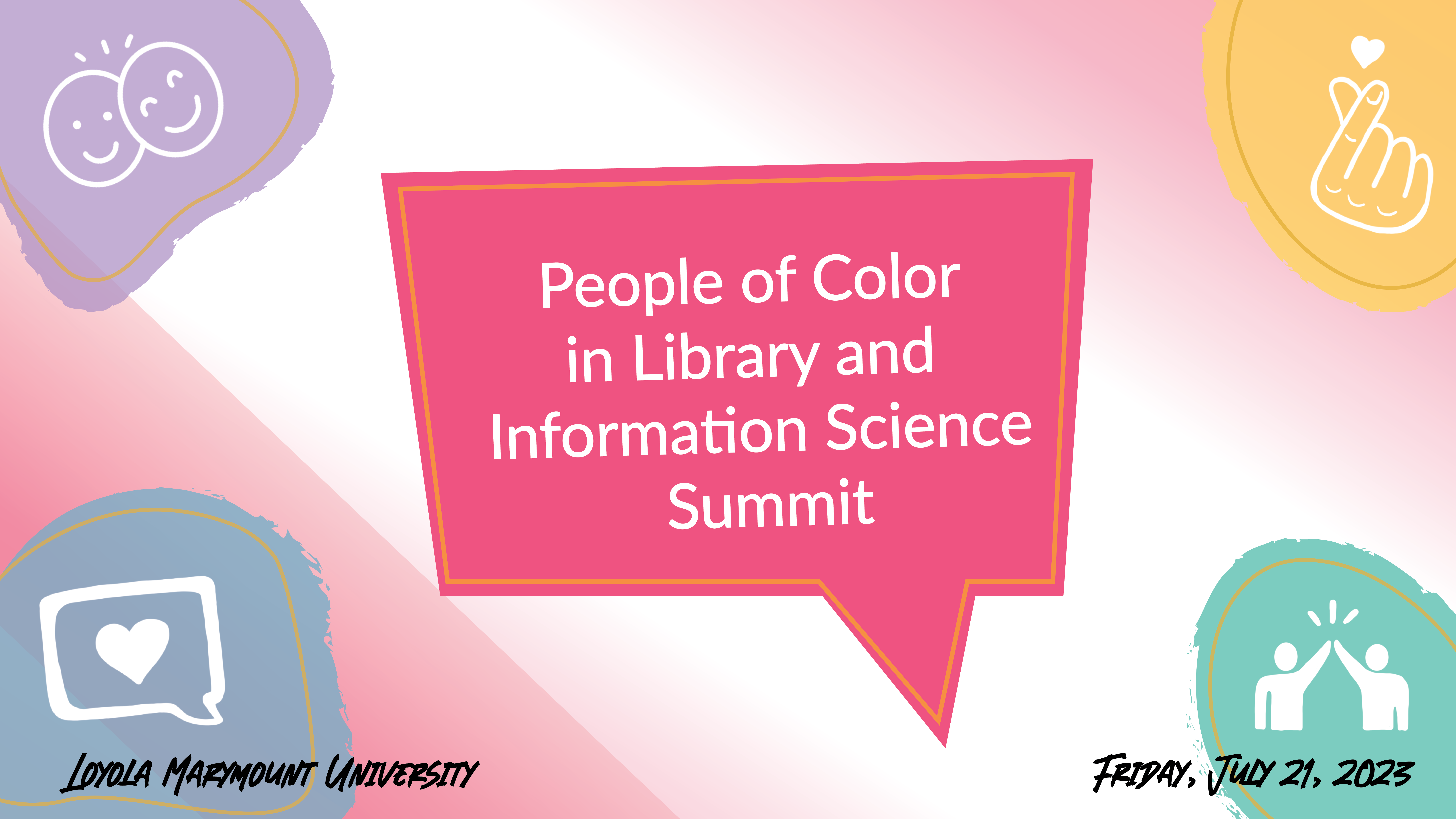Event Type
Lightning Talk
Location
Ahmanson Auditorium
Start Date
21-7-2023 2:25 PM
End Date
21-7-2023 3:25 PM
Description
As BIPOC library workers, we often have a complicated relationship to DEIA work within our respective institutions. Some of us embrace it. Some of us reject it, and others remain cautious but continue to contribute to it. Whatever our relationship is to DEIA, all our perspectives and experiences are valid. Border Thinking as a concept, formed by Gloria Anzaldua and later adopted and developed further by decolonial scholars like Walter Mignolo, highlights the knowledge produced outside of colonial systems. Border Thinking not only legitimizes this knowledge, but lived experience, as well. This lightning talk explores the framework of Border Thinking in relation and in contrast to DEIA work. Adopting Border Thinking as a guiding framework behind our service work, praxis, and pedagogy presents an alternative mindset to institutional DEIA. As our experience often shows, institutions value a subdued form of DEIA practices from us that preserves whiteness and rarely challenges the overwhelmingly White majority of our work spaces. Many of us not only suppress our opinions for the sake of our survival, but we begin to doubt the worth of our knowledge that is rooted in both theory and community. To exist within academia and to take up DEIA work means that we must accept their opposing realities. Our practice is holistically rooted, immeasurable by colonial methods. It is written on our bodies and philosophies or values. We practice equity, justice, inclusion, and access without the expectation of benefit or evaluation. Sometimes, we do this work por que semos tercas.* My aim in bringing this discussion to this summit is to find a community of library workers interested in exploring alternative frameworks, such as Border Thinking, that uphold community knowledge and experience.
*Stubborn
Outcomes
- Attendees will explore alternative frameworks or mindsets to institutional DEIA work to develop or adopt into their practices or value systems.
- Attendees will explore Border Thinking as a framework to utilize in their LIS education and careers.
- Presenter and attendees may be able to establish a practicing community depending on interest.
Lightning Talk: Resisting the Institutionalization of DEIA: Border Thinking and Academic Librarianship
Ahmanson Auditorium
As BIPOC library workers, we often have a complicated relationship to DEIA work within our respective institutions. Some of us embrace it. Some of us reject it, and others remain cautious but continue to contribute to it. Whatever our relationship is to DEIA, all our perspectives and experiences are valid. Border Thinking as a concept, formed by Gloria Anzaldua and later adopted and developed further by decolonial scholars like Walter Mignolo, highlights the knowledge produced outside of colonial systems. Border Thinking not only legitimizes this knowledge, but lived experience, as well. This lightning talk explores the framework of Border Thinking in relation and in contrast to DEIA work. Adopting Border Thinking as a guiding framework behind our service work, praxis, and pedagogy presents an alternative mindset to institutional DEIA. As our experience often shows, institutions value a subdued form of DEIA practices from us that preserves whiteness and rarely challenges the overwhelmingly White majority of our work spaces. Many of us not only suppress our opinions for the sake of our survival, but we begin to doubt the worth of our knowledge that is rooted in both theory and community. To exist within academia and to take up DEIA work means that we must accept their opposing realities. Our practice is holistically rooted, immeasurable by colonial methods. It is written on our bodies and philosophies or values. We practice equity, justice, inclusion, and access without the expectation of benefit or evaluation. Sometimes, we do this work por que semos tercas.* My aim in bringing this discussion to this summit is to find a community of library workers interested in exploring alternative frameworks, such as Border Thinking, that uphold community knowledge and experience.
*Stubborn
Outcomes
- Attendees will explore alternative frameworks or mindsets to institutional DEIA work to develop or adopt into their practices or value systems.
- Attendees will explore Border Thinking as a framework to utilize in their LIS education and careers.
- Presenter and attendees may be able to establish a practicing community depending on interest.




